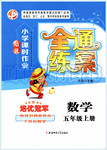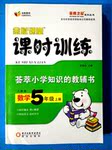题目内容
The tea gardens in Sri Lanka are actually large estates(种植园). The best tea usually comes from plants grown on high grounds, the cool hilltops with rows and rows of tea plants. The plants are about one metre apart. The plant is often pruned so that it remains only 60 to 90 centimetres high. Pruning is important because it encourages the growth of tender hoots, or young leaves. It is from these shoots that the best in got.
Practically all the tea pickers are women. The estates like to employ women pickers because they are more careful. Their thin fingers can easily remove the twin leaves and new shoots from the plant, which are the parts used for processing(加工)tea. The pickers carry large baskets into which they throw their pickings. A skilled worker can harvest between 9 to 14 kilogrammes of tea leaves a day. Usually new shoots can be picked from the plants about every ten or fifteen days.
Processing tea shoots into the familiar dry tea leaves requires great care and skill. There are various methods of processing depending on the type of tea required. For black tea, the young green leaves are first spread out on shelves to dry. This process removes much of its water and the leaves become soft. After this, the leaves are passed through heavy rollers. This operation will press the leaves for juices which give the tea both its colour and taste. Then the leaves are spread out on floors and left to ferment(发酵)under wet conditions. Fermentation develops the rich taste of black tea. The fermented leaves are then dried with a hotair blower until they become rolledup black leaves. The final step is to sort and grade them before the black tea is ready for sale to countries all over the world
- 1.
In the first paragraph, the word“pruning”means______
- A.regular cutting of the plants
- B.frequent watering
- C.regular use of chemicals
- D.growing the plants high in the mountain
- A.
- 2.
One of the reasons why women are employed to do the picking is that________
- A.they work harder than men do in picking
- B.they can throw their picking more easily into the baskets
- C.their fingers fit them better for the job
- D.they can move easily find the twin leaves
- A.
- 3.
How many processing steps are mentioned in the last paragraph?
- A.Three.
- B.Four
- C.Five.
- D.Six
- A.
- 4.
What's the writer's purpose in writing the passage?
- A.To introduce various methods of tea processing
- B.To persuade readers to buy tea from Sri Lanka
- C.To tell a story that had happened in the tea gardens
- D.To inform readers of tea growing, picking and processing
- A.
ACCD
试题分析:。本文主要是向我们介绍茶叶的生产制作过程。第一段是生产过去,第二段是采摘过程,第三段是加工的过程。
1.A 推理题。根据前句The plant is often pruned so that it remains only 60 to 90 centimetres high.说明这样做的结果是这些树总是保持60到90厘米的高度,那你们该词应该指修剪。故A正确。
2.C 细节题。根据第二段2,3行Their thin fingers can easily remove the twin leaves and new shoots from the plant, which are the parts used for processing(加工)tea.说明她们的手指适合采摘茶叶,故C正确。
3.C 细节题。根据最后一段1,the young green leaves are first spread o,2, After this, the leaves are passed through heavy rollers.,3,Then the leaves are spread out on floors and left to ferment(发酵)under wet conditions,4,The fermented leaves are then dried with a hotair blower until they become rolledup black leaves,5,The final step is to sort and grade them。一共是5个步骤。故C正确。
4.D 主旨大意题。本文主要是向我们介绍茶叶的生产制作过程。第一段是生产过去,第二段是采摘过程,第三段是加工的过程。故D正确。
考点:考查自然知识说明文
点评:本文介绍了茶叶的生产制作的过程,所设试题主要考察细节查找,对于文章中的细节题,要注意文本内容的理解。关键是找出原文的根据,认真核查题支和原文的异同,常犯错误有:绝对化语言,范围扩大或缩小,以偏概全,张冠李戴等。带着问题,再读全文,找出答题所需要的依据,完成阅读。
试题分析:。本文主要是向我们介绍茶叶的生产制作过程。第一段是生产过去,第二段是采摘过程,第三段是加工的过程。
1.A 推理题。根据前句The plant is often pruned so that it remains only 60 to 90 centimetres high.说明这样做的结果是这些树总是保持60到90厘米的高度,那你们该词应该指修剪。故A正确。
2.C 细节题。根据第二段2,3行Their thin fingers can easily remove the twin leaves and new shoots from the plant, which are the parts used for processing(加工)tea.说明她们的手指适合采摘茶叶,故C正确。
3.C 细节题。根据最后一段1,the young green leaves are first spread o,2, After this, the leaves are passed through heavy rollers.,3,Then the leaves are spread out on floors and left to ferment(发酵)under wet conditions,4,The fermented leaves are then dried with a hotair blower until they become rolledup black leaves,5,The final step is to sort and grade them。一共是5个步骤。故C正确。
4.D 主旨大意题。本文主要是向我们介绍茶叶的生产制作过程。第一段是生产过去,第二段是采摘过程,第三段是加工的过程。故D正确。
考点:考查自然知识说明文
点评:本文介绍了茶叶的生产制作的过程,所设试题主要考察细节查找,对于文章中的细节题,要注意文本内容的理解。关键是找出原文的根据,认真核查题支和原文的异同,常犯错误有:绝对化语言,范围扩大或缩小,以偏概全,张冠李戴等。带着问题,再读全文,找出答题所需要的依据,完成阅读。

练习册系列答案
 小学课时作业全通练案系列答案
小学课时作业全通练案系列答案 金版课堂课时训练系列答案
金版课堂课时训练系列答案 单元全能练考卷系列答案
单元全能练考卷系列答案
相关题目